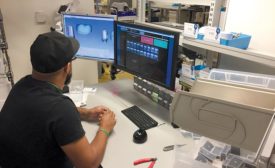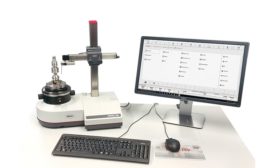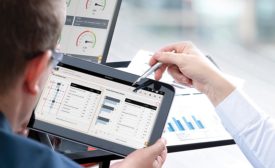Home » Industry 4.0
Articles Tagged with ''Industry 4.0''
Quality 4.0: The Internet of Things is Only Half the Solution
Even at the most automated facilities human operators are responsible for correctly configuring, maintaining and monitoring machines.
April 9, 2018
Industry 4.0 and the Age of Exploration
These are exciting times in terms of both technological advancements and the potential for a new world order in manufacturing.
November 20, 2017
INDUSTRY HEADLINE
TASI Group acquires Ottawa’s Sciemetric Instruments Inc.
November 10, 2017
Form Measurement: Making it Easy
Understanding these issues may help you advance your process, or at least, make things less difficult.
October 17, 2017
From Paper and Pencil to Industry 4.0: Revealing the Value of Data through Quality Intelligence
For manufacturers to realize the full power of quality and the data behind it, they must embrace the technology available.
October 10, 2017
INDUSTRY HEADLINE
Hexagon Manufacturing Intelligence Keynote Presents the Factory of the Future at HxGN LIVE 2017
May 23, 2017
Stay in the know with Quality’s comprehensive coverage of
the manufacturing and metrology industries.
eNewsletter | Website | eMagazine
JOIN TODAY!Copyright ©2025. All Rights Reserved BNP Media.
Design, CMS, Hosting & Web Development :: ePublishing







